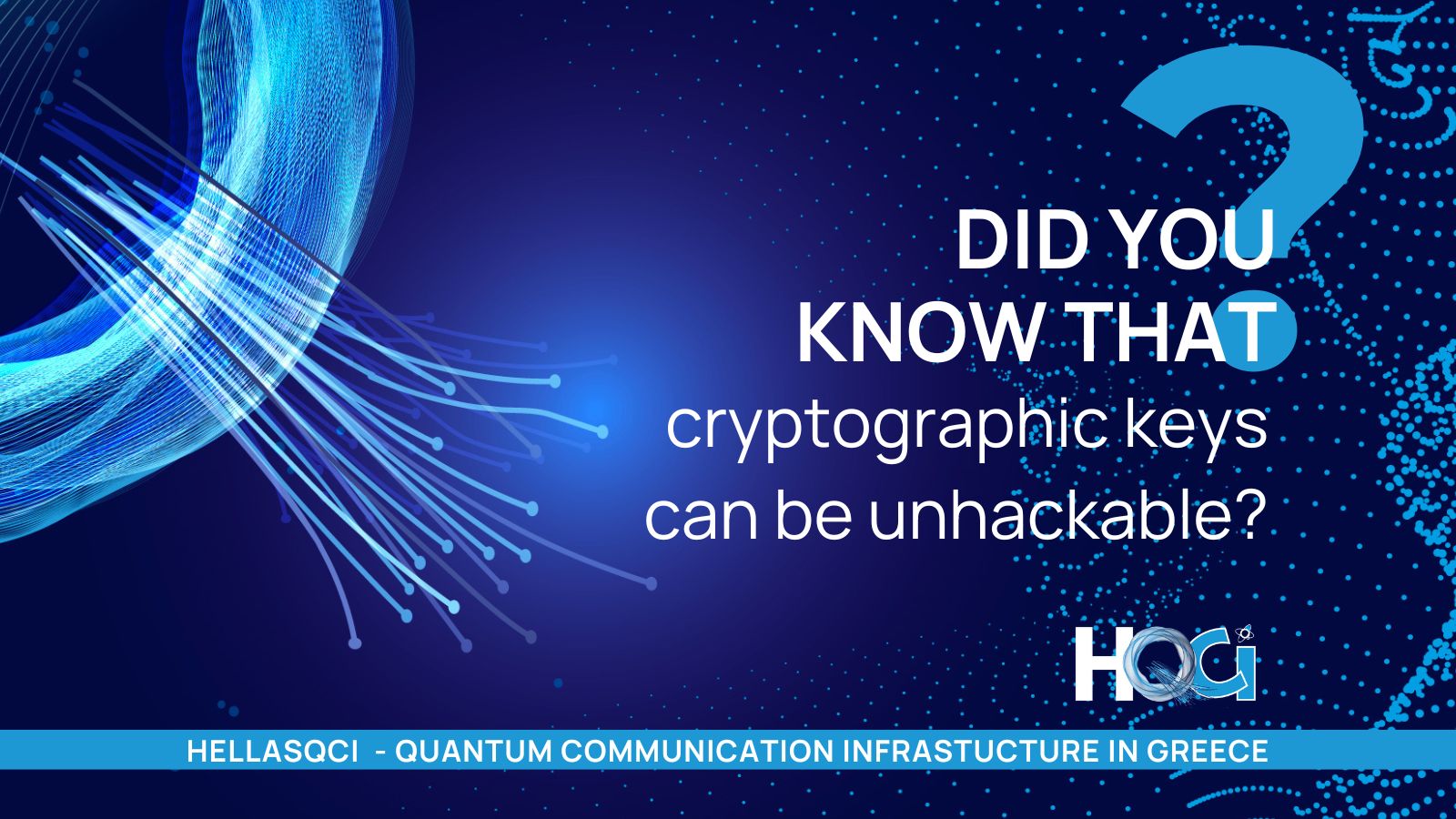Quantum Key Distribution (QKD) is transforming data encryption, making it virtually unbreakable by leveraging the laws of quantum mechanics. Unlike classical cryptography, where cryptographic keys can be intercepted and copied by adversaries, QKD protocols enable the distribution of secret truly random keys between two users, through the transmission of random quantum states of light (photons). Any attempt to intercept or measure the transmitted photons disturbs their quantum state, alerting both the sender and the receiver to potential eavesdropping.
The first QKD protocol was introduced by Bennett & Brassard in 1984, laying the foundations of quantum cryptography. By utilizing QKD, organizations can ensure secure communication for sensitive data, critical infrastructures, and government operations.
HellasQCI is at the forefront of developing QKD networks by integrating satellite, urban, and fiber-optic technologies to create a seamless quantum communication infrastructure. This initiative strengthens data security while contributing to the European Quantum Communication Infrastructure (#EuroQCI).
*Reference: Bennett, Charles H., and Gilles Brassard. “Quantum cryptography: Public key distribution and coin tossing.” Proceedings of IEEE International Conference on Computers, Systems and Signal Processing. 1984.

